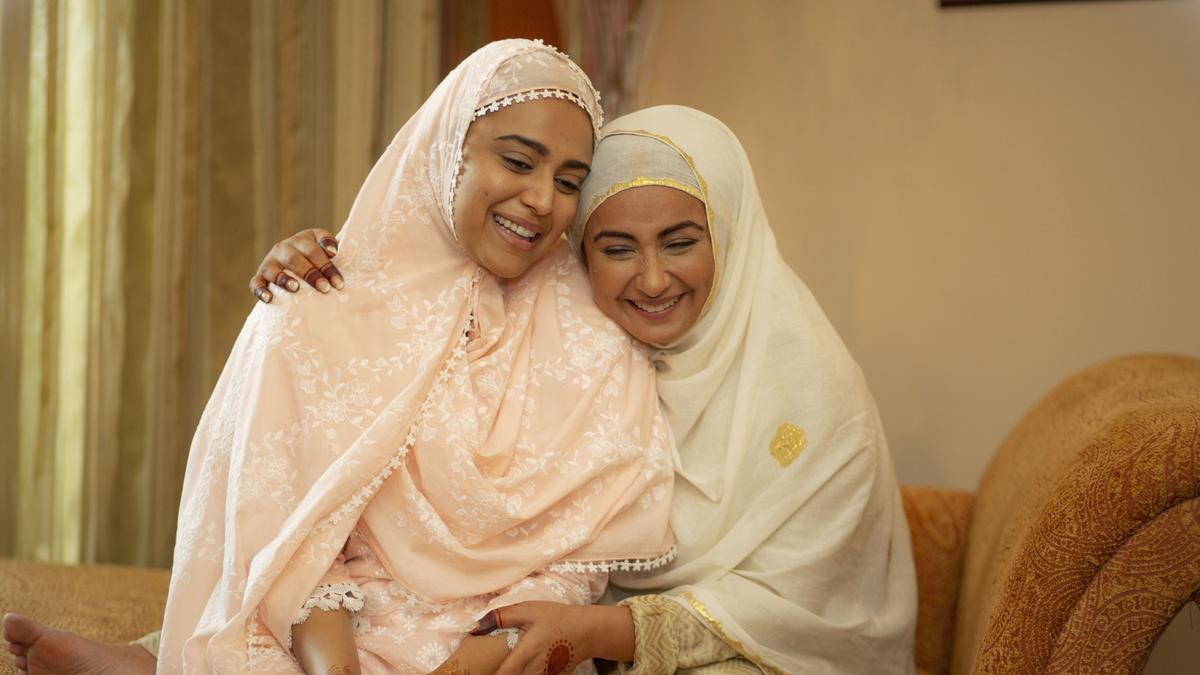
Pride Month 2024: A glimpse into the Out & Loud Pune International Queer Film Festival
The Hindu
Over a weekend, Max Mueller Bhavan in Pune played host to an astonishing variety of films, centred on numerous aspects of the queer experience
“Love is not a sin.” These are words that Sitara, Swara Bhasker’s character in Sheer Qorma, wanted to hear from her late mother after coming out. But she never did. This, and similar affecting elements of the queer experience, formed the underpinnings of the 8th edition of the Out and Loud Pune Queer International Film Festival, which saw the screening of more than 40 films and three panel discussions from May 24 to 26.
In a tent adorned with cheery Pride flags on the campus of Max Mueller Bhavan/Goethe Institut, Pune, people gathered to watch films creatively reimagining painful or touching lived realities, and documentaries capturing powerful moments, centred around the queer community.
Taking place shortly before Pride month (which is celebrated in June every year), the festival offered up assorted perspectives on queer lives, with feature films, shorts, documentaries and experimental narratives from across India and the globe. It was organised by MIST LGBTQ foundation, with IBM as a title sponsor.
The closing film and arguably one of the biggest draws of the festival was Sheer Qorma, directed by Faraz Asif Ansari. Soft, poignant and rich in detail, the film traces the story of Saira, a non-binary individual played by Divya Dutta, and their relationship with their mother (Shabana Azmi), strained further by the presence of Saira’s wife, Sitara (Swara Bhasker).
Saira has been estranged from their mother for several years. On Eid, they decide to return home for the first time in 15 years with their wife. Right at the start we see the clear difference in the treatment of Sitara and Susan, Saira’s brother’s partner. Frustrated with the fact that no amount of time was enough to bring their mother around to their lived reality, Saira leaves the meal in a huff. Sitara, meanwhile, has lost her mother soon after coming out to her, and only longs to hear the words — mohabbat gunah nahi hain (love is not a sin). How Saira’s mother comes around to acceptance, not merely tolerance, through the subtle and sensitive insight of one in their household, forms the rest of the story.
The film received critical claim when it was released in 2021, garnering several accolades and qualifying for the BAFTA Awards. This, however, was the film’s first screening in Pune. In a speech after the movie, Faraz pointed out that there is no support for independent filmmakers, especially those working with queer narratives. It took so long to bring it here because it was difficult to find collaborators. “No one wanted to fund it,” they share.
Sheer Qorma happened after Faraz was asked by a queer audience member at a college screening why they always saw men in Indian queer narratives, not women. The idea for the film originated then, with the filmmaker soon sketching out a pivotal scene where the two leads, garbed in headscarves, bend their heads together — on a napkin. “I wanted to show that the mainstream can be feminine, sublime, and sensitive,” they share, adding that they also sought an authentic portrayal of both Muslim and queer identities.

nyone trying to slot Hong Kong filmmaker Ann Hui into a particular genre will be at a loss, for all through her 45 year-long career, she has moved easily between varied spaces, from independent cinema to the mainstream, from personal films to a bit of action too. For that matter, she has made a horror film too. Ask her about it and the 77-year old, who was conferred with the 29th International Film Festival of Kerala (IFFK)‘s Lifetime achievement award, says with disarming candour that she was just trying to see what she was good at.










